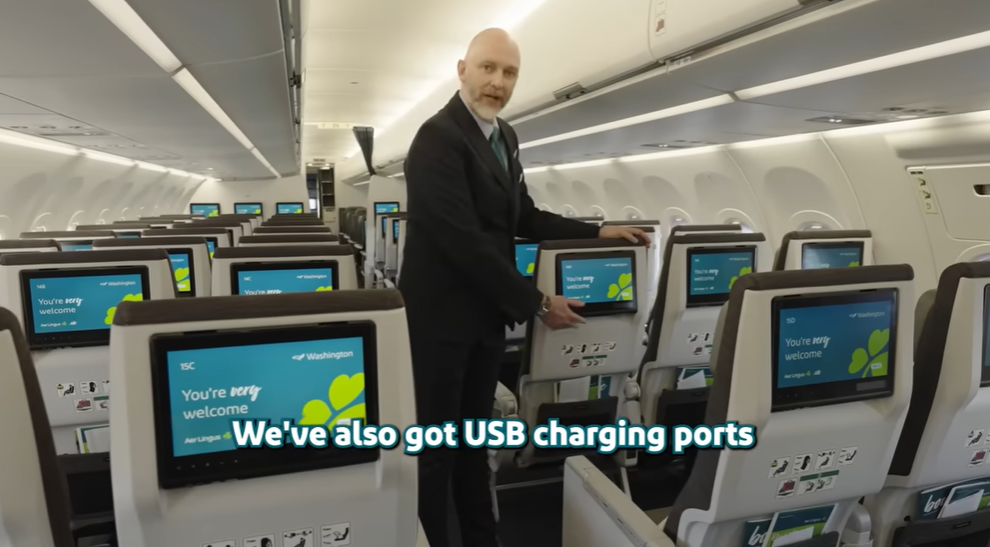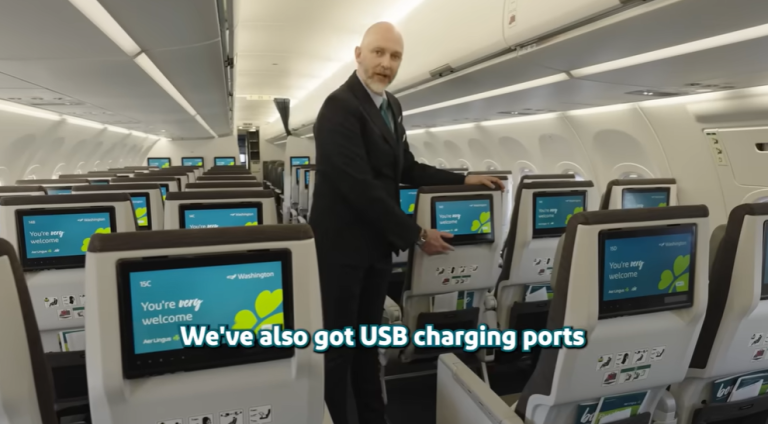The 2025 Aircraft Engineer Apprenticeship, a rigorous four-year program that is a particularly successful entry point into aviation engineering, is now accepting applications again. This program, which is intended for people who have a strong mechanical mindset and a sincere interest in aircraft, combines immersive classroom instruction with practical hands-on experience to create a training experience that is both dynamic and career-defining. The apprenticeship eliminates conventional barriers to entry and substitutes them with intentionally supportive pathways, all while maintaining a fully funded structure and paid positions throughout.
The program, which is offered in collaboration with Shannon Aviation School and Technological University Dublin (TUD), carefully blends theoretical knowledge with real-world application. Apprentices move to Shannon to receive intensive foundational training at SAMS for about nine months. They then move on to Aer Lingus’ maintenance operations, where they immediately apply the lessons learned to operational aircraft systems. The program becomes especially innovative in its capacity to produce well-rounded, industry-ready engineers who comprehend both the theoretical and technical aspects of the job by utilizing this dual-location model.
Aer Lingus Apprenticeship Programme Overview
| Attribute | Description |
|---|---|
| Programme Name | Aircraft Engineer Apprenticeship |
| Duration | Four years |
| Structure | Combination of classroom-based learning (SAMS & TUD) and Aer Lingus maintenance rotations |
| Qualification | QQI Level 6 Advanced Certificate in Aircraft Maintenance |
| Academic Partners | Shannon Aviation Maintenance School (SAMS), Technological University Dublin (TUD) |
| Paid Training | Yes – full salary and benefits throughout the programme |
| Relocation | Approx. 9 months in Shannon for academic coursework |
| Application Timeline | Annual (Current intake begins September 2025) |
| Link to Apply | Aer Lingus Apprenticeship Application |
The Aer Lingus apprenticeship is specifically made to reflect the rapid technological change that has occurred in aviation over the last ten years, moving from analog mechanics to digital diagnostics. To make sure apprentices are ready for the aircraft of the next 20 years, not just the ones of today, the curriculum incorporates smart technologies, predictive maintenance techniques, and sustainability-focused modules in addition to traditional instruction.

The program drastically cuts down on the time it takes to develop highly adaptive engineers by teaching apprentices to think beyond the wrench. This includes teaching them about software-integrated engines, real-time data monitoring, and fuel efficiency upgrades. As airlines around the world shift to carbon-neutral fleets and more sophisticated onboard systems, that foresight becomes even more important.
The program’s forward-thinking approach to workforce development has brought it new attention in recent months. Aer Lingus has provided a noticeably more inclusive route—one that values aptitude, curiosity, and practical ability just as much as exam scores—while many industries still promote university degrees as the only means of achieving professional success. For people who prefer to learn by doing rather than by sitting in lecture halls, this structure feels especially helpful.
Competitors have taken notice of this tactic. Similar models have been introduced by airlines like Ryanair and British Airways, but Aer Lingus’ close integration of internal operations and academic institutions is still remarkably evident and effective. Consistent standards, updated course materials, and a feedback loop between industry and education are all guaranteed by this partnership.
It is immediately clear from speaking with former participants how profoundly formative the experience is. Many apprentices report feeling more confident and purposeful in addition to having more knowledge. During her first maintenance rotation, a 2023 graduate recalled how she gained a profound understanding of the intricacy of aviation safety while adjusting hydraulic systems under supervision. These real-world and poignant accounts provide compelling evidence that vocational training, when carefully administered, can change more than just skill sets.
The economic and social ramifications are equally significant. Alternative educational pathways have become more popular in Ireland in recent years, particularly for young adults living outside of cities. The Aer Lingus apprenticeship offers a surprisingly affordable, academically demanding, and professionally respected alternative for students who are unable—or unwilling—to take on significant university debt. It now serves as a model for how opportunities can be unlocked through practical education without putting a strain on finances.
The program’s ability to foster not only individual careers but also a group culture of creativity and discipline is especially impressive. Apprentices are exposed to the industry’s rhythms, including safety procedures, communication systems, and engineering ethics, at an early age by working with full-time engineers. In addition to being technically proficient, professionals who are emotionally and socially ready for high-stakes work are produced in this atmosphere, which is rife with accountability and teamwork.
The timing is particularly critical when considering industry demand. With seasoned employees nearing retirement and younger replacements lacking the requisite hours and training, airlines are experiencing a severe shortage of licensed aircraft maintenance engineers. By creating a pipeline of engineers who are ingrained in the airline’s technical philosophy from the start, Aer Lingus is proactively filling that gap with this apprenticeship.
Completing the program will have long-term advantages that go far beyond finding work right away. In addition to joining international maintenance teams and pursuing EASA Part-66 licenses, graduates can advance into leadership and operations positions at Aer Lingus or the larger IAG network. Because of its adaptability, the apprenticeship is extremely valuable for long-term career growth as well as job readiness.
Aer Lingus is accomplishing much more than just meeting staffing demands with the help of strategic alliances, modernized curricula, and highly structured mentorship. It’s changing the definition of what an aviation entry point can be. The apprenticeship encourages individuals to influence the direction of flight rather than just preparing them to maintain aircraft.


